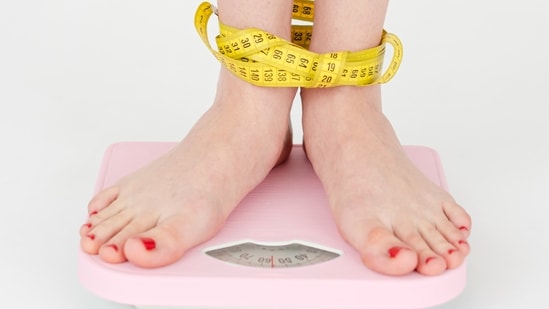Losing weight can be a commendable achievement and a step towards a healthier lifestyle. However, extreme weight loss can sometimes lead to hormonal imbalances and the loss of the menstrual cycle in women. This condition is known as hypothalamic amenorrhea. If you have been experiencing a loss of periods due to weight loss, here are some tips to help you get your period back:

1. Consult a healthcare professional: Before taking any steps to regain your period, it is crucial to consult a healthcare professional or a gynecologist. They will be able to assess your individual situation and provide guidance tailored to your needs.
2. Achieve a healthy weight: Although weight loss might have triggered the loss of your period, extreme weight gain can also disrupt the menstrual cycle. Aim for a healthy weight range for your body type and try to maintain it.
3. Focus on balanced nutrition: A nutrient-rich diet is key to restoring hormonal balance and improving overall health. Make sure to include a variety of whole foods, such as fruits, vegetables, lean proteins, and whole grains, in your meals. Consider working with a registered dietitian who can help you create a personalized meal plan.
4. Adequate calorie intake: Many women with hypothalamic amenorrhea restrict their calorie intake too much. Gradually increasing your calorie intake to a level that supports your activity level and overall health can help restore hormonal balance and restart your period.
5. Manage stress levels: Chronic stress can disrupt the hormonal balance and delay the return of your period. Engage in stress-reducing activities such as meditation, yoga, or spending time in nature. It may also be helpful to identify and address any underlying stressors in your life.
6. Get enough sleep: Adequate sleep is crucial for hormonal regulation. Aim for 7-9 hours of quality sleep each night to support the restoration of your menstrual cycle.
7. Exercise in moderation: Over-exercising can contribute to menstrual irregularities. While regular physical activity is important for overall health, be mindful of excessive exercise. Find a balance that allows you to stay active without putting excessive stress on your body.
8. Consider hormone therapy: In some cases, healthcare professionals may recommend hormone therapy to stimulate the return of your period. This can involve medications such as oral contraceptive pills or hormone replacement therapy. Work closely with your healthcare provider to determine the best approach for you.
9. Be patient: Restoring your period after weight loss may take time. It is essential to be patient and understand that everyone’s body responds differently to changes. Give yourself time to heal and trust the process.
10. Monitor your progress: Keep track of your menstrual cycle and any changes you notice. This will help you and your healthcare provider assess whether your efforts are yielding positive results.
Remember, it’s important to address the underlying cause of the loss of your period and prioritize your overall health. By seeking professional guidance, making lifestyle modifications, and taking care of your body, you can increase your chances of getting your period back after weight loss.